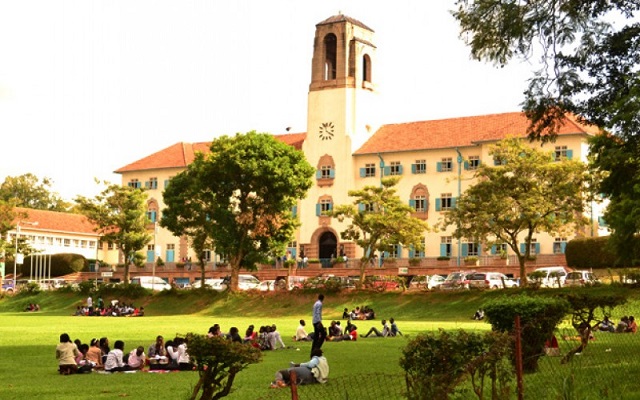
Kampala, Uganda | THE INDEPENDENT | Makerere University has started teaching academic staff on how they can develop online learning materials that can be shared with students. This is for purposes of sustaining learning during the lockdown period since education institutions might stay closed.
Recently, Makerere top management met during a virtual meeting and resolved to set up a committee headed by Dr Umar Kakumba, deputy vice-chancellor in charge of Academic Affairs to work on modalities of how the university can efficiently adopt online learning.
Dr Kakumba notes that the university has drawn both short term and long term interventions on the matter. He adds that they want to activate remote learning via the university e- digital learning, Makerere University E-Learning Environment.
“At least we have a starting point. With this, we are going to ensure that staff develops content that will be accessed by all learners. This is just for now. We are still developing a detailed plan which will lead to standardized e-learning at Makerere,” says Dr Kakumba.
Associate Professor Jessica Norah Aguti who is also the director of the Institute of Open, Distance, and E-learning, notes the university has started academic staff virtual training which will enable them to conduct online lessons but also develop online learning materials.
“Digital learning is requires more skills, approaches and methods of teaching. We must instill the pedagogical principals of e-learning into academic staff members for them to develop simple learning material for the start. Of course, it is difficult for a staff who was used to face to face method to swiftly adopt to the new system but this is the new normal,” shares Dr Aguti.
Dr Aguti who has been reviewing several interventions by different education institutions in Uganda notes that she has realized that most of them are just rushed and uncoordinated and likely to benefit only a few.
Dr Kakumba argues that although digital learning was introduced into Uganda’s oldest public university almost a decade ago, its practical indicators and utilization have remained unreliable.
He notes that introducing e-learning in a university and Uganda at large could base on the level of availability of infrastructure, technical support, clear policies on implementation, evaluation and curriculum re-orientation which altogether need to work out.
“This is not a development of one day or six months. We need to sit on a drawing board as a country to plan for digital learning. We need policies, infrastructure, and many other things. All these cannot be achieved in one day. However, this doesn’t mean that we can make short term interventions to meet the prevailing circumstances,” says Dr Kakumba.
The university has also organized with telecommunication companies to have all the university portals accessed by the student at zero charges during the covid-19 lockdown.
Furthermore, to promote E-Learning during the COVID-19 lockdown and beyond, Makerere University has started engaging computer manufacturers on the possibility of obtaining affordable yet good quality laptops for students which can be paid off on a hire purchase basis over an agreed period.
Dr Kakumba notes that very soon, the university will launch intensive research into digital learning in Uganda to clearly understand each aspect. “We have some research conducted by the department of distance learning. More studies in e-learning are vital and will go a long way in enhancing the implementation of the e-learning projects.”
*****
URN
 The Independent Uganda: You get the Truth we Pay the Price
The Independent Uganda: You get the Truth we Pay the Price





